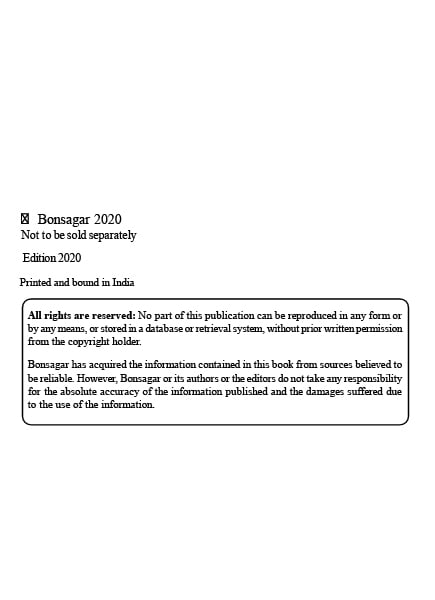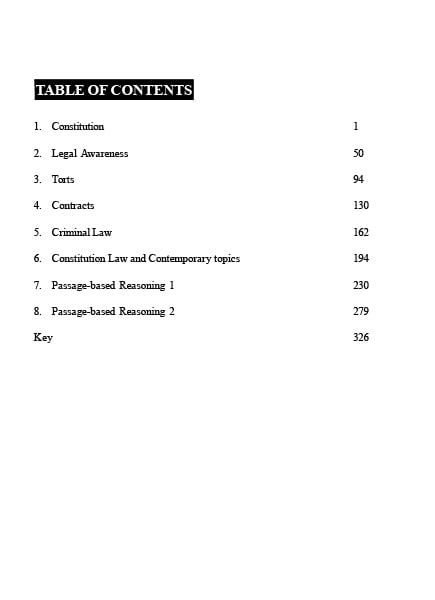How to Manage Time Effectively During CLAT Preparation and Exam Day
Time management plays a crucial role in preparing for and taking the Common Law Admission Test (CLAT). The exam requires not only knowledge but also the ability to manage time effectively, both during the preparation phase and on the actual exam day. CLAT assesses a wide range of skills, and developing a strategy for time management can be the key to success. In this article, we will discuss methods for managing your time effectively during both CLAT preparation and the exam day.
The Importance of Time Management in CLAT Preparation
Time management during CLAT preparation ensures that you cover all subjects, revise thoroughly, and practice enough before the exam. Without a structured schedule, it’s easy to feel overwhelmed by the amount of material to study. Moreover, effective time management helps you stay focused, reduces stress, and ensures that you’re working smarter, not harder.
The CLAT UG exam consists of five main sections: English Language, General Knowledge and Current Affairs, Legal Reasoning, Logical Reasoning, and Quantitative Techniques. Each section requires a distinct approach, so managing time properly is essential.
Time Management Tips During CLAT Preparation
1. Set Clear and Realistic Goals
The first step in managing your time effectively is setting realistic and clear goals. Your goals should be both short-term (daily and weekly) and long-term (monthly). Here’s how to approach them:
Daily Goals: Set a list of tasks for the day, such as completing a chapter or solving a certain number of practice questions. This will help you stay on track.
Weekly Goals: At the start of each week, review your progress and plan for the upcoming week. Assess your performance in mock tests or practice papers, and set goals accordingly.
Monthly Goals: Monthly objectives help you map out larger sections of the syllabus and track your long-term progress.
2. Follow a Structured Study Plan
Once your goals are set, it’s time to create a study plan. A well-thought-out plan ensures you are spending time on each section and subject based on priority. Your plan should account for:
Subject Prioritization: Devote more time to sections or subjects that you find challenging. For example, if Quantitative Techniques is more difficult for you than English, allocate extra study time for the former.
Time Allocation: Break down your study day into 2-3 hour blocks with short breaks between them. Use techniques like the Pomodoro method (study for 25 minutes, followed by a 5-minute break) to keep your focus intact.
3. Practice with Mock Tests and Past Papers
Time management doesn’t just mean how much you study; it’s also about how you apply what you’ve learned under exam conditions. Regular practice with mock tests is essential for time management. Here’s why:
Familiarity with Exam Format: Mock tests help you get comfortable with the format of the CLAT exam. You will be able to gauge how much time each section requires and adjust your strategy accordingly.
Identify Weak Areas: Mock tests will highlight the sections where you’re spending too much time. If, for example, you are spending more time on Legal Reasoning than on Quantitative Techniques, you can reallocate your study time.
Improve Speed: Time yourself while solving practice papers to improve your speed and accuracy. A significant part of CLAT success lies in answering questions quickly and confidently.
4. Revise Regularly
Regular revision helps solidify concepts in your memory and prevents last-minute cramming. During your study sessions, allocate time at the end of each week for revising what you’ve studied. Regular revision helps ensure that you retain information and increases recall speed during the exam.
5. Stay Flexible and Adjust Your Schedule as Needed
While a study plan is important, flexibility is equally crucial. You might come across certain topics that need more time, or you might realize that you’re progressing faster than anticipated. Revisit your study plan periodically and make adjustments based on your progress. This will help you stay on track and avoid stress.
6. Take Care of Your Health
Maintaining a balanced lifestyle is essential for optimal performance during preparation. Ensure you get enough sleep, eat healthy, and take time to exercise. Mental and physical well-being can greatly impact your ability to manage time effectively and stay focused on your studies.
Time Management on Exam Day
On the day of the CLAT exam, you will be tested not just on your knowledge but also on your ability to manage your time efficiently under pressure. Here’s how to maximize your time during the actual exam:
1. Familiarize Yourself with the Exam Pattern
The CLAT UG consists of 150 multiple-choice questions (MCQs) to be completed in two hours. The exam covers five sections: English, Current Affairs, Legal Reasoning, Logical Reasoning, and Quantitative Techniques. Each section carries equal weightage, so managing time across all sections is crucial. Knowing the number of questions in each section helps you pace yourself appropriately. For example:
English Language: 28-32 questions
Current Affairs: 35 questions
Legal Reasoning: 35 questions
Logical Reasoning: 30 questions
Quantitative Techniques: 13-17 questions
2. Start with the Easier Sections
It’s crucial to begin with sections you are confident in, as this will help build your momentum and boost your confidence. For example:
Start with English and General Knowledge since they may be quicker to answer.
Move on to Legal Reasoning and Logical Reasoning, which may require more thought but can often be answered relatively quickly if you’re prepared.
Quantitative Techniques may take more time, so it’s a good idea to leave this section for later in the exam.
3. Manage Your Time for Each Section
A good rule of thumb is to spend about 20-25 minutes on each section. For Quantitative Techniques, you might want to allocate around 15-20 minutes, since it has fewer questions. This will leave you with time to review any questions you left for later or to address tricky problems.
Use the first 10 minutes to quickly skim through the questions, and mark the easy ones. You can solve these questions first and move on to the more challenging ones later.
Don’t spend too much time on a single question. If you’re stuck, make an educated guess and move on.
4. Monitor the Clock and Stay Calm
During the exam, keep an eye on the time but avoid constantly checking the clock. You don’t want to develop anxiety or rush through questions. Periodically glance at the clock to ensure you’re pacing yourself. If you realise you’re lagging behind in one section, adjust your time allocation for the rest of the exam.
5. Don’t Leave Questions Unanswered
There’s no negative marking in CLAT, so ensure you attempt every question. Even if you’re unsure about a question, there’s no harm in attempting it.
Conclusion
Effective time management during CLAT preparation and on exam day is crucial to maximising your potential and performing your best. By creating a structured study plan, setting realistic goals, practising regularly, and prioritising well, you can manage your preparation efficiently. On exam day, following a strategic approach by pacing yourself across the sections and staying calm will help you make the most of your time. With the right preparation and time management techniques, you can approach the CLAT with confidence and increase your chances of success.




